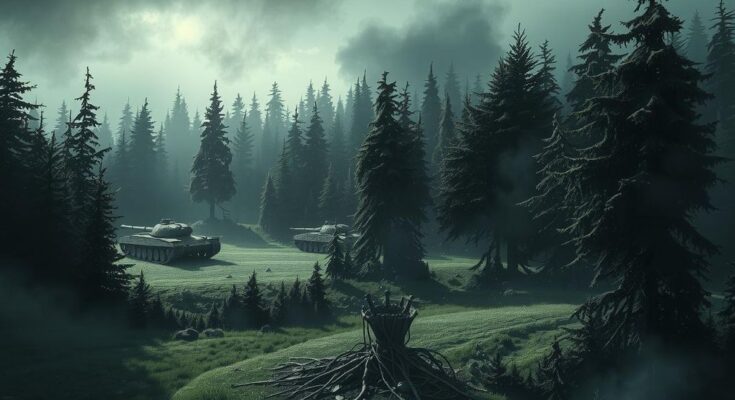Rwandan soldiers and M23 rebels are allegedly disguising themselves as Congolese military personnel in the DRC. Cases of forced recruitment of children and chaotic confrontations have been reported, contributing to civilian fatigue and despair. The M23’s portrayal as stabilizers is viewed with skepticism due to historical precedents of conflict. Calls for international intervention highlight the need for support in restoring order and protecting the innocent amid ongoing warfare.
In the Democratic Republic of the Congo (DRC), concerns have emerged regarding Rwandan soldiers and M23 rebels allegedly disguising themselves as members of the Congolese military. A resident of Bukavu reported that soldiers, identified as wearing FARDC uniforms, were observed removing these disguises to reveal their affiliations with M23 or the Rwandan Defence Force (RDF). This deception raises significant questions about the true identity of armed forces in the region.
Additionally, the conflict is plagued by the forced recruitment of children and young individuals into armed groups. Reports indicate that unidentified armed forces have abducted students from a school in Uvira for enlistment in their ranks. As pro-Rwandan forces advanced, tensions escalated between fleeing FARDC soldiers and local self-defense groups, leading to chaotic confrontations that resulted in casualties.
The ongoing warfare has left local populations fatigued and concerned about the shifting dynamics of power. The M23 rebels have presented themselves as potential stabilizers in the areas they occupy, yet their methods and intentions remain suspect. As expressed by a source, there is apprehension that these actors may disguise their true nature while maintaining fundamentally unchanged behaviors reminiscent of past conflicts.
The sentiments of despair are compounded by the expectations of the populace, who may not oppose change as overtly as assumed. As articulated by the source, international intervention is critical; without it, Rwandan forces and their allied factions may persist in their advances, exploiting the vulnerabilities of Congolese political and military systems.
The message of hope amidst suffering was echoed by Archbishop Emeritus Emmanuel Kataliko, who, in a 1999 letter, emphasized that God is not distant from those enduring pain. He reminded believers that Jesus Christ embodies the suffering of the people, urging that the true victims of this conflict are the innocent citizens deceived by war.
These developments underline the precarious situation in the DRC, where the authenticity of military affiliations is questioned, child recruitment remains a crucial issue, and the civilian population yearns for peace in a continuously volatile environment.
The conflict in the DRC is characterized by the infiltration of foreign forces disguised as national military personnel, the alarming forced recruitment of children into armed groups, and the overall weariness of the civilian population. There is a pressing need for effective international intervention to restore stability, as local institutions struggle against manipulation and incompetence. The sentiments expressed by religious leaders remind us that the plight of the innocent should never be overlooked amidst the chaos of war.
Original Source: www.vaticannews.va




